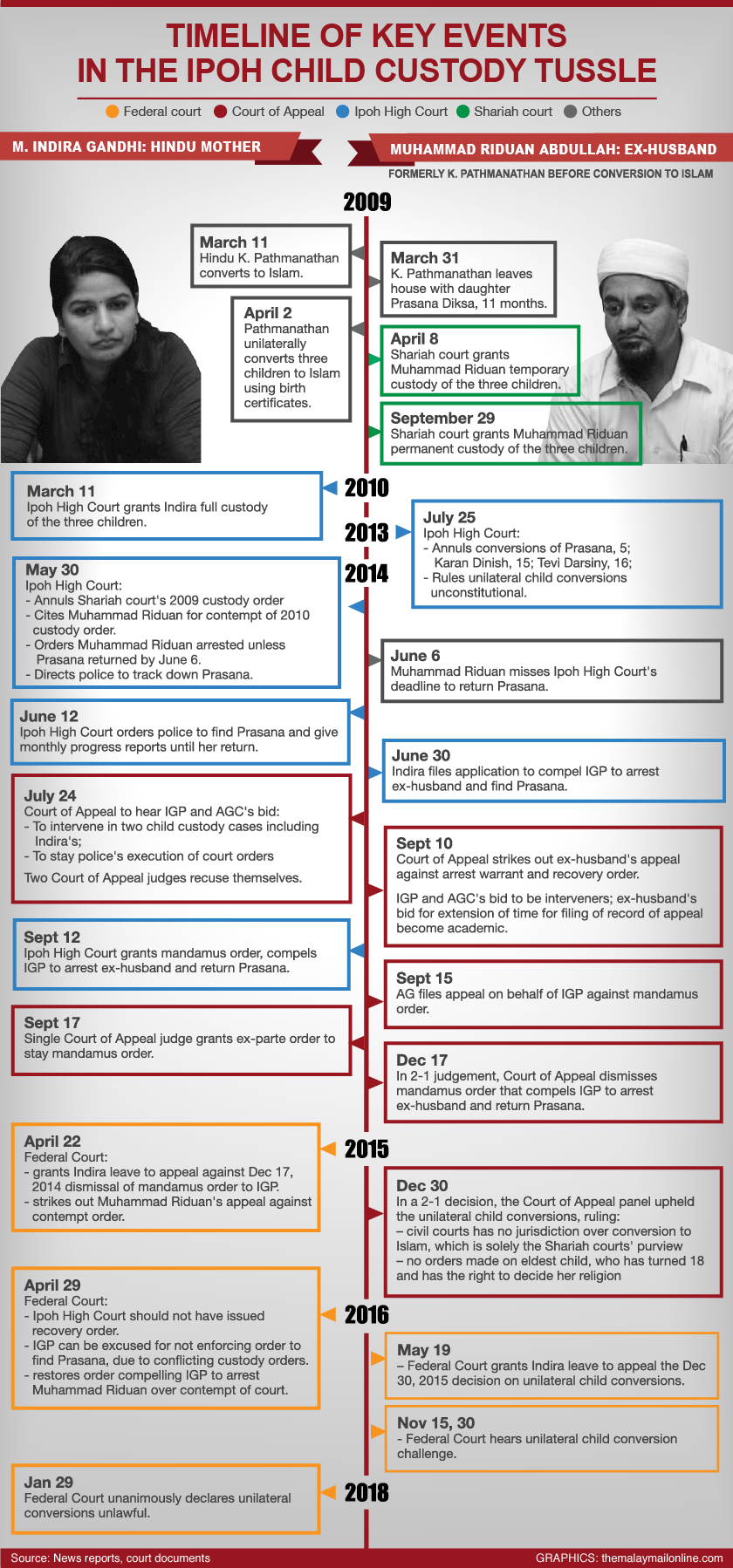- M. Indira Gandhi will know today if the Inspector-General of Police (IGP) and the government neglected a Federal Court order to arrest her ex-husband and return her daughter, Prasana Diksa, abducted 15 years ago.
- Indira filed the suit in 2020, alleging the IGP had deliberately and negligently disregarded a court order to recover her missing daughter. She is seeking RM100 million in damages for the emotional distress this had caused.
- In 2009, Indira’s ex-husband, after converting to Islam, took their daughter and converted their children without consent, using Shariah courts to gain custody. The High Court granted Indira full custody in 2010.
- This civil suit came on the heels of a landmark Federal Court ruling in 2018 that declared unilateral conversions of children to Islam as unlawful.
KUALA LUMPUR, June 28 — Hindu mother M. Indira Gandhi will find out today if the Inspector-General of Police (IGP) and the government had deliberately and negligently disregarded a Federal Court order to arrest her ex-husband and return her daughter whom he abducted 15 years ago.
Judicial Commissioner Datuk Raja Ahmad Mohzanuddin Shah Raja Mohzan, who is presiding over the civil matter at the High Court, is scheduled to deliver his decision in the lawsuit Indira filed in October 2020.
In her suit, Indira alleged that the IGP — then held by Tan Sri Abdul Hamid Bador — had deliberately and negligently disregarded an April 2016 mandamus order issued by the Federal Court in failing to investigate or take appropriate action to return her daughter, Prasana Diksa.
Besides the IGP, Indira also named the Royal Malaysia Police, the Home Ministry, and the Malaysian government as respondents.
She is also seeking RM100 million in damages for emotional distress caused by authorities’ inaction to locate her daughter, among other grievances.
On July 16, 2021, the High Court dismissed the application by the named defendants to strike out the suit and the decision was upheld by the Court of Appeal on September 7, 2022.
Indira claimed that all four defendants had roles to play in making decisions for or ordering the police to execute the committal warrant against her Muslim convert ex-husband Muhammad Riduan Abdullah as ordered by the Federal Court.
She contended that their acts or omissions had directly allowed Muhammad Riduan to flee and lengthened her separation from her youngest daughter until today.

In 2009, Indira was separated from Prasana — who was then just 11 months old — when her ex-husband K. Pathmanathan left the house with the toddler and converted Prasana and her two other siblings to Islam without their knowledge or consent.
Pathmanathan, who took the name Muhammad Riduan upon his conversion, then used the Shariah courts in 2009 to gain custody of the three children.
However, the High Court in 2010 granted full custody of the children to Indira.
Indira also obtained mandamus orders that compelled the police to both find Prasana and to arrest Muhammad Riduan for his contempt of court due to his failure to return the child to Indira’s custody.
Prasana Diksa was taken away by Muhammad Riduan when she was 11 months old, shortly after he converted to Islam.

Recommended reading:
- Simplified: The Federal Court’s groundbreaking Indira Gandhi judgment
- Lawyers explain: When Federal Court says unilateral conversion unconstitutional, but state laws say OK
- Conversion to Islam without both parents’ consent: Indira Gandhi, two ‘victims’ file court challenge against such laws
- Unilateral conversion is a violation of human rights — Sisters in Islam






















